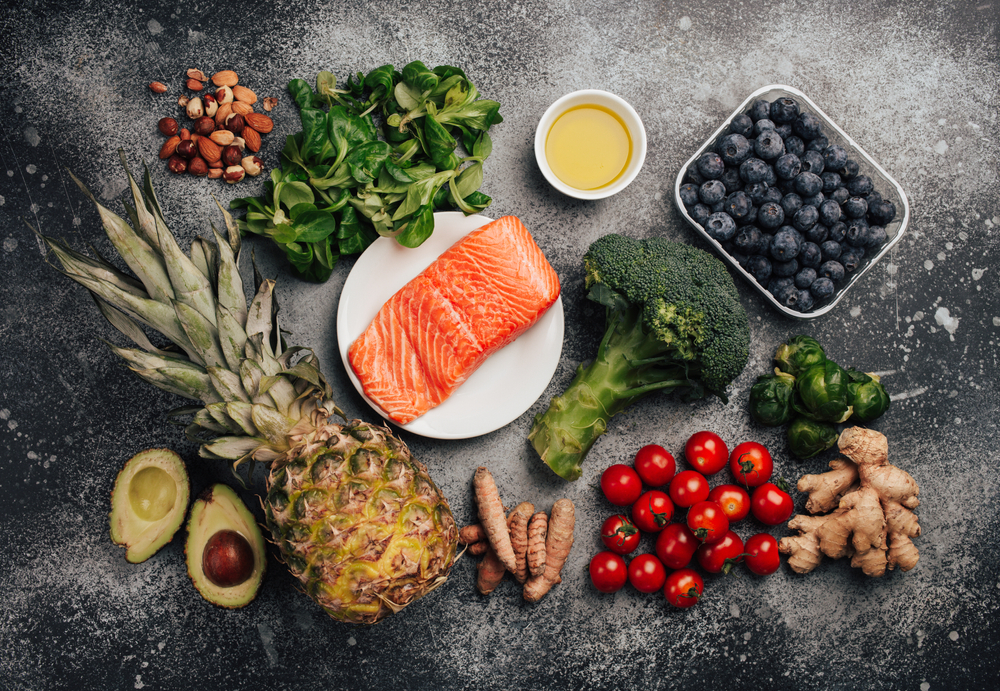WORDS ANAS ALMASWARY
 FEATURED EXPERT FEATURED EXPERTANAS ALMASWARY Master’s Student in Clinical Nutrition Faculty of Health Sciences Universiti Kebangsaan Malaysia (UKM) |
The role of nutrition in the first phase of a child’s life, especially in the first thousand days, is huge and influences the immune response system and later health.
THE IMPACT OF EARLY NUTRITION
Nutrition during the first 1000 days, including the intrauterine period, is crucial for a child’s development, affecting the gut microbiota composition and immune system.
The immune system receives benefits from dietary omega-3 long-chain fatty acids, prebiotics, and micronutrients.
There is an intricate relationship among diet, microbiome, and epigenetic elements influencing this interaction. Numerous non-communicable diseases (NCDs) linked with dysbiosis begin their ‘programming’ in childhood.
Nutrition also plays a significant role in shaping the composition and development of children’s microbiota, thus exerting a powerful influence on the development of NCDs.
STRATEGIES TO STRENGTHEN IMMUNITY IN KIDS BELOW 5
Breastfeed
In the first 2 years of a child’s life, breastfeeding plays a crucial role in providing essential nutrients and immune support for infants.
Breast milk offers a unique blend of antibodies and nutrients that help strengthen a baby’s immune system and overall health. Introducing a variety of nutrient-rich foods after breastfeeding can further enhance a child’s immune health.
Diversify Nutrient Intake
Enhance your child’s immune system by incorporating a variety of colorful fruits, vegetables, whole grains, and lean proteins into their diet. These foods provide essential nutrients crucial for building strength and immunity.
Citrus Fruits for Immune Support
Include vitamin C-rich citrus fruits such as oranges and lemons in your child’s diet. These fruits act as natural immune boosters, safeguarding your child’s health.
Promote Gut Health with Probiotics
Opt for probiotic-rich yoghurt to support a healthy gut environment, which plays a significant role in overall immunity. A balanced gut ensures a robust defense system against illnesses.
Harness the Power of Antioxidants
Incorporate antioxidant-rich berries like blueberries and strawberries into your child’s meals to enhance their immunity. These berries provide a powerful boost to your child’s health and immune function.
Essential Vitamins from Leafy Greens
Ensure your child consumes leafy greens such as spinach and kale to benefit from vitamins A, C, and E, which are essential for strengthening the immune system.
Prioritize Hydration
Encourage your child to stay hydrated by drinking plenty of water and natural fruit juices. Proper hydration helps flush out toxins from the body, supporting overall health and immunity.
Healthy Swaps for Immunity
Replace sugary treats with wholesome options like fresh fruits and natural sweeteners to boost immunity in a healthier way.
References:
- Cunha, A. J. L. A., Leite, Á. J. M., & Almeida, I. S. D. (2015). The pediatrician’s role in the first thousand days of the child: The pursuit of healthy nutrition and development. Jornal de Pediatria, 91, S44-S51. https://doi.org/10.1016/j.jped.2015.07.002
- Kong, X., Zhuang, L., Wang, M., Zhang, S., Peng, J., & Feng, Z. (2020). Effect of bovine lactoferrin supplementation on intestinal inflammatory factor expression in premature rats model of necrotizing enterocolitis. Chinese journal of applied clinical pediatrics, 35(2), 151-155.
- Fragkou, P. C., Karaviti, D., Zemlin, M., & Skevaki, C. (2021). Impact of early life nutrition on children’s immune system and noncommunicable diseases through its effects on the bacterial microbiome, virome and mycobiome. Frontiers in immunology, 12, Article 644269. https://doi.org/10.3389/fimmu.2021.644269
- Camacho-Morales, A., Caba, M., García-Juárez, M., Caba-Flores, M. D., Viveros-Contreras, R., & Martínez-Valenzuela, C. (2021). Breastfeeding contributes to physiological immune programming in the newborn. Frontiers in pediatrics, 9, Article 744104. https://doi.org/10.3389/fped.2021.744104
- Shao, T., Verma, H. K., Pande, B., Costanzo, V., Ye, W., & Bhaskar, L. (2021). Physical activity and nutritional influence on immune function: An important strategy to improve immunity and health status. Frontiers in physiology, 12, Article 751374. https://doi.org/10.3389/fphys.2021.751374
- Miles, E. A., & Calder, P. C. (2021). Effects of citrus fruit juices and their bioactive components on inflammation and immunity: A narrative review. Frontiers in immunology, 12, Article 712608. https://doi.org/10.3389/fimmu.2021.712608
- Pagnini, C., Saeed, R., Bamias, G., Arseneau, K. O., Pizarro, T. T., & Cominelli, F. (2010). Probiotics promote gut health through stimulation of epithelial innate immunity. Proceedings of the National Academy of Sciences, 107(1), 454-459. https://doi.org/10.1073/pnas.0910307107
- Tomovska, J., & Vllasaku, I. (2021). Review of antioxidants in fruit berries and its impact in immune system. Asian journal of plant and soil sciences, 6(1), 136-147. https://www.researchgate.net/publication/355192320_Asian_Journal_of_Plant_and_Soil_Sciences_REVIEW_OF_ANTIOXIDANTS_IN_FRUIT_BERRIES_AND_ITS_IMPACT_IN_IMMUNE_SYSTEM
- Faber, M., Phungula, M. A., Venter, S. L., Dhansay, M. A., & Benadé, A. S. (2002). Home gardens focusing on the production of yellow and dark-green leafy vegetables increase the serum retinol concentrations of 2–5-y-old children in South Africa. The American journal of clinical nutrition, 76(5), 1048-1054. https://doi.org/10.1093/ajcn/76.5.1048
- Benelam, B., & Wyness, L. (2010). Hydration and health: A review. Nutrition bulletin, 35(1), 3-25. https://doi.org/10.1111/j.1467-3010.2009.01795.x
- Arshad, S., Rehman, T., Saif, S., Rajoka, M. S. R., Ranjha, M. M. A. N., Hassoun, A., Cropotova, J., Trif, M., Younas, A., & Aadil, R. M. (2022). Replacement of refined sugar by natural sweeteners: Focus on potential health benefits. Heliyon, 8(9), e10711. https://doi.org/10.1016/j.heliyon.2022.e10711



 PROFESSOR DR SUZANA SHAHAR
PROFESSOR DR SUZANA SHAHAR